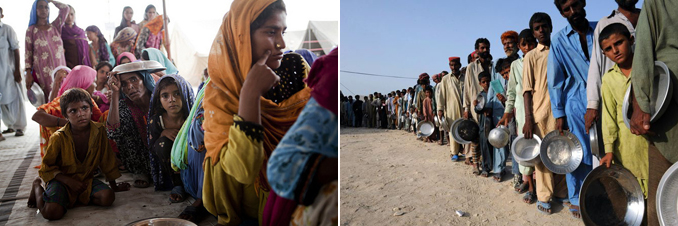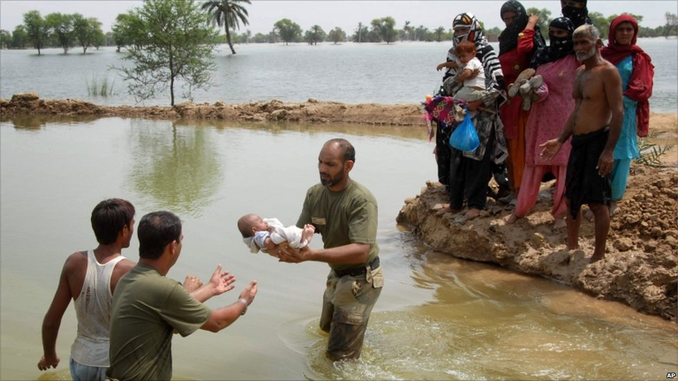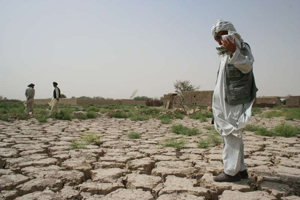Written by: Zahra Belal - Posted on: July 18, 2014 |  Comments
Comments
Google Translation: اُردو | 中文
When you explore the causes of climate change, the first thing that comes up is increase in CO2 emissions from activities such as vehicle use, deforestation and forest degradation, and industrial production, among others. The impacts on climate, which are starting to appear, are food insecurity, frequency of natural calamities, water shortage, and spread of pandemic water-borne and food illnesses. Ironically, the ones who are least contributing to climate change are the ones who are expected to suffer the most and at times amplified impacts from climate, i.e., the already poor and underprivileged around the world.
What do you need to buy a car? What do you need to set up a factory? What do you need to buy huge tracks of land? What do you need to wipe out the trees and build settlements over it? What do you need to silence policy makers and regulation officials over environmental violations and degradation? What do you need to brush up and cover facts? What do you need to drive profits from profits, in a never ending cycle?
For these and more, what you need is money, not just a mere handful of notes of currency, rather quite a fortune. It is this fortune that the poor and marginalized segments of the community simply do not have as they travel around on foot, barely earn enough to fill their belly for a day or at times less, live in shacks, mud houses or what could only be euphemized as “natural habitats”, and lead a simple life in the truest sense of the word.
 |
Yet, as climate change rears its ugly head, it is the benign lives of these communities that are at most peril. Already living below, on or slightly above the poverty line, they do not have the resources to take adaptation or mitigation measures against the emerging environmental problems, while governments as usual continue to neglect and ignore their vulnerabilities- they do not possess the social power needed to have an audible political voice. According to the UNDP Human Development Report titled Fighting Climate Change: Human Solidarity in a Divided World, “Concentrated in fragile ecological areas, drought-prone arid lands, flood-prone coastal areas, and precarious urban slums, the poor are highly exposed to climate change risks—and they lack the resources to manage those risks.”
The crux of the matter is that the poor have no choice against climate change, as is always the case with everything. The livelihood of a large faction of these communities is tied to the land and the natural habitat that they live in. Endangering forests, agricultural land, sea, lakes and rivers is hence equivalent to threatening their livelihood, while natural disasters as a result of climate change wreak havoc on these communities who have very little capability to rehabilitate, recover and re-bounce. In recent years, rising sea levels have resulted in storms, and rising temperatures in floods that have incurred huge human and material losses to the poor fishermen, farmers and workers. Additionally, the expected seasons of droughts resulting in food and water shortage will have the worst implications for the same people as they scramble around to cope with inflated prices, resulting in malnourishment and social problems. Moreover, with a plethora of problems and pressing needs, these people simply would not have the resources to bolster against the spread of diseases, or even obtain a cure for them, some of which are expected to be life threatening.
 |
Pakistan flash floods of recent years cause $15 billion in economic losses destroying millions of acres, taking hundreds of lives and displacing thousands |
 |
Yet, it is not their lifestyle or luxuries and convenience that brought the planet to this critical stage. They made no profits from the high-pace environmentally hazardous development that transformed the world in every sense of the word while any benefits that they enjoyed from progress and development are the ones that they paid dearly for with their hard earned money. If this is a case of an externality, then where are the efforts being made for compensation of these communities?
Contrarily, the affluent and the privileged have the full capability to take make maximum mitigation and adaptation measures against climate change impacts. Rising temperatures causing heat waves can easily be countered by spending money on air conditioning, increasing water consumption, using medicated sun-screens, and adorning weather suited and stylistic apparel. Food insecurity would hardly impact as you lessen some luxuries to meet high food prices. For them, the issue is a small question of a slight change in the lifestyle.
However, for those in the lower echelons of the society, it’s a big, frightening question of survival.